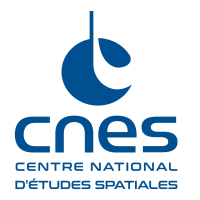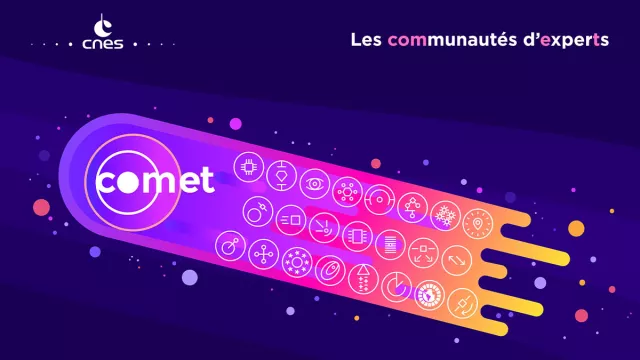CNES’s COMETs are networks of experts focused on space-related technologies and methodologies, federating more than 5,000 stakeholders from the worlds of research, industry and institutions around 20 disciplines in France.
Key information
| Mission | Spur knowledge sharing to boost expertise and creativity through open innovation between the space sector and other sectors of activity, by organizing seminars, workshops and working groups |
|---|---|
| Domain | Cross-cutting (technology policy) |
| Start date | Inception in 1998 |
| Partners | Firms, research bodies, institutions and government agencies |
| Where | Chiefly in and around Toulouse and Paris |
| Lifetime | Indefinite |
| Status | In operation |
Key figures
- 20 areas of expertise
- 5,000+ members and subscribers
- Up to 15 members on each COMET committee
- ~50 seminars every year
Key milestones
- 2023: COMETs celebrate their 25th anniversary
- 2016: CCTs renamed COMETs (expert communities)
- 1998: CNES forms CCTs (technical expertise centres)
Project in brief
CNES first set up these communities in 1998 to encourage engineering excellence, nurture expertise, spur innovation and leverage experience by:
- Sharing knowledge to boost technical and methodological know-how at individual and team levels
- Spurring innovative ideas and priming the pipeline of doctoral research, R&T and other collaborations
- Helping to shape the technology policy and roadmaps of CNES and the space ecosystem
- Disseminating know-how
- Drawing on lessons learned
Today, COMETs are a focal point for exchange between the space sector and other areas of activity, laying the groundwork for the future and assuring mutual benefits for all partners, across all areas of technical and functional expertise useful to CNES and the space ecosystem.
Each COMET is led by a duo overseeing a multipartite CNES-research-industry-agency bureau with 10 or so active members that proposes and executes an annual programme of events for its community, which plays an active role driving proposals and may count anything between 200 and 800 members.
A ‘Like’ COMET covers the needs of other thematic domains for which no formal COMET exists.
In all, more than 50 seminars are held every year, most of them open and offering free entry by registering on CNES’s COMET website (comet-cnes.fr/en).
By bringing together diverse professional communities and cultures in a relaxed and informal setting, such ‘open innovation’ events help to share and advance knowledge, and to spawn new ideas.
The domains of expertise currently covered by CNES’s COMETs are:
- AIT Payload and spacecraft integration
- CAC Components intelligence
- CYB Cybersecurity
- ECM Electromagnetism and microwave circuits
- EDB On-board power systems
- ENV Atmospheric and space environment
- IRE IT and embedded networks
- MAT Materials
- MCE Microsystems and electronic components
- OOE Optics and optoelectronics
- OPS Space mission operations and exploitation
- ORB Spaceflight dynamics
- PDS Satellite positioning and timing
- RSE Corporate social responsibility
- SCA Command and automation systems
- SIL Information systems architecture and software engineering
- SPS Space propulsion systems
- STR Structures
- SYS Systems engineering
- TSI Signal and image processing systems
- LIKE Orphan themes
CNES’s role
CNES is the originator of the COMET project.
Contacts
Project Leader
Dominique Pheav
E-mail: dominique.pheav at cnes.fr


